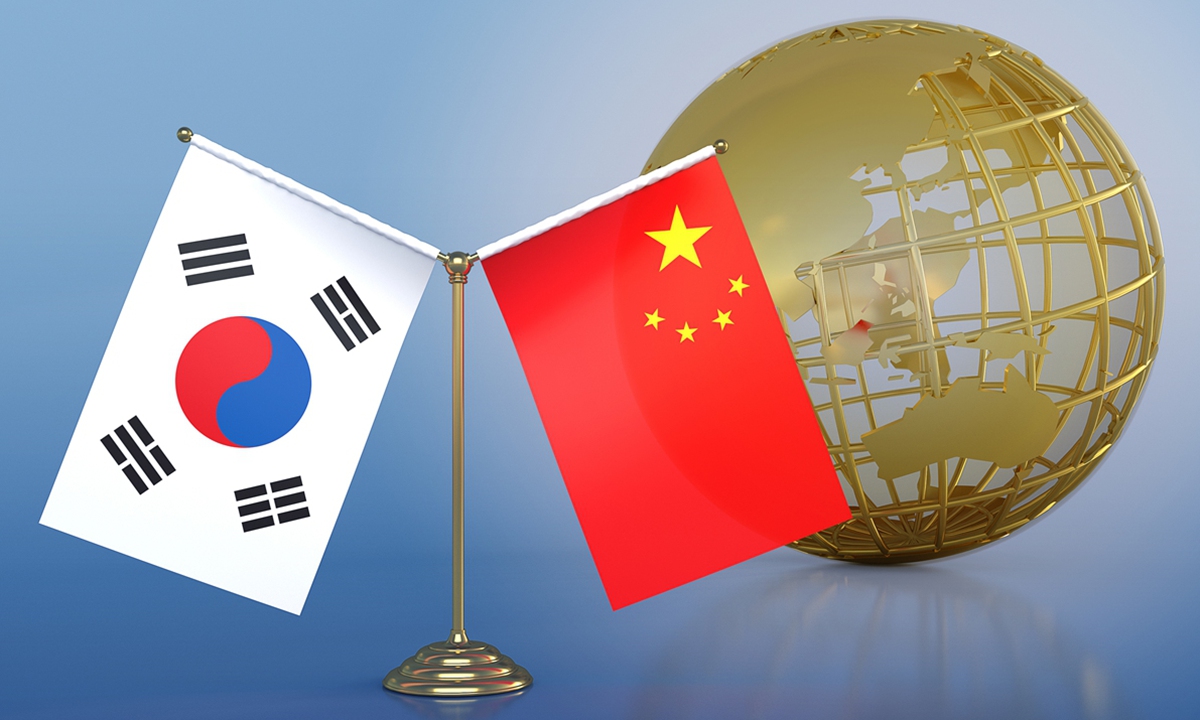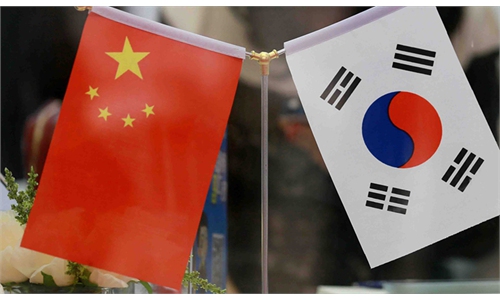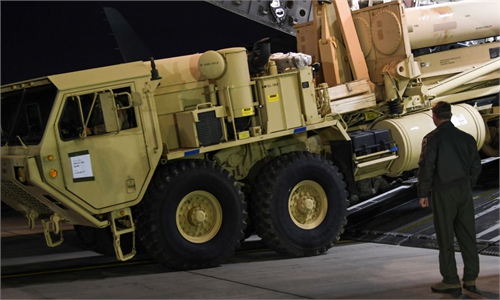THAAD issue should not be stumbling block in China-S. Korea relations again: analysts

China-South Korea Relations Photo:VCG
The current frictions between China and South Korea over the deployment of the Terminal High Altitude Area Defence (THAAD) system are created by the US, as it has ramped up efforts to pressure South Korea to take further steps in the controversial issue to not only make breakthroughs in the military field and surveillance around the Korean Peninsula, but also to sow discord between China and South Korea, analysts said, reminding South Korea not to sacrifice its own interests for Washington.
On Thursday, the South Korean presidential office said that it expects to normalize the operation of the military base that hosts THAAD by around end-August and the South Korean government "maintained a consistent position that THAAD is a means of self-defense," South Korean media reported.
One day earlier, Chinese Foreign Ministry spokesperson Wang Wenbin told a press conference that the US' deployment of the THAAD anti-missile system undermines China's security interests and it has made clear its concerns to South Korea on multiple occasions.
The deployment of THAAD by the US is not only aimed at achieving breakthroughs in the military and reconnaissance of the Korean Peninsula, but more importantly, it aims to drive a wedge between China and South Korea and to force South Korea to choose sides between two superpowers. As a result, the THAAD issue remains unresolved and has become a mine buried between China and South Korea, Lü Chao, an expert on Korean Peninsula issues at the Liaoning Academy of Social Sciences, told the Global Times on Thursday.
The dispute over THAAD in 2017 was also the most serious crisis since the establishment of diplomatic relations between the two countries, which brought immeasurable damage to bilateral relations, economic and trade cooperation and people-to-people and cultural exchanges, Lü added.
Topics related to the deployment of THAAD have attracted more attention in recent weeks. China had urged the Yoon government to keep the preceding Moon Jae-in government's "Three No's" policy on THAAD and act prudently on major issues concerning its neighbors' security, after South Korean foreign minister Park Jin said at the National Assembly in July that the "Three No's" policy is not a commitment to China.
Previously, when South Korea announced the deployment of THAAD in 2016, China-South Korea relations had been severely damaged. Ever since South Korean President Yoon Suk-yeol vowed to deploy THAAD during his presidential campaign, analysts have warned that Yoon should understand the seriousness of the issue as it had sparked outrage among the Chinese people, and South Korea should not sacrifice its interests to follow the US.
The expert said that South Korea is facing pressure from the US and pro-US forces at home.
Although it is still difficult to fundamentally solve the THAAD issue, the governments of both sides are actively managing risks for the purpose of normal development of bilateral relations and regional peace and stability, so as to prevent the issue from becoming a trigger for a crisis in China-South Korea relations and even regional tensions, the expert remarked.
During the meeting between Chinese State Councilor and foreign minister Wang Yi and South Korean Foreign Minister Park Jin on Tuesday, the two sides held deep exchanges on the deployment of THAAD with each side stating their stances. Wang also pointed out the importance of properly dealing with the issue and not letting it become an obstacle to bilateral relations.
The consensus reached by the foreign ministers of the two countries during the talks, including continuing to promote economic and trade cooperation and people-to-people exchanges between China and South Korea, will continue to be implemented, which also means that bilateral relations will continue to develop in a positive direction in the future, said Lü.
At the same time, experts also warned that the THAAD issue is still a destabilizing factor in China-South Korea relations and the regional situation.


